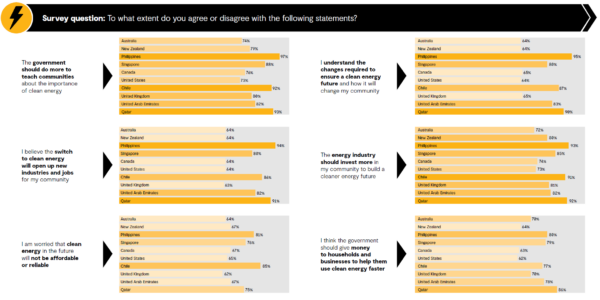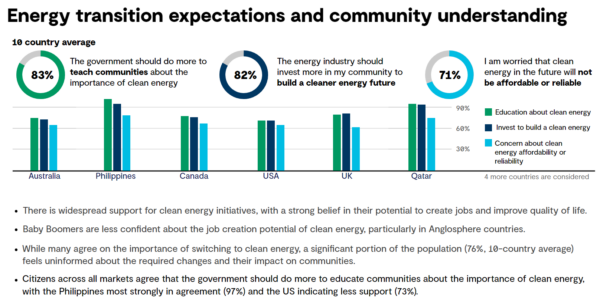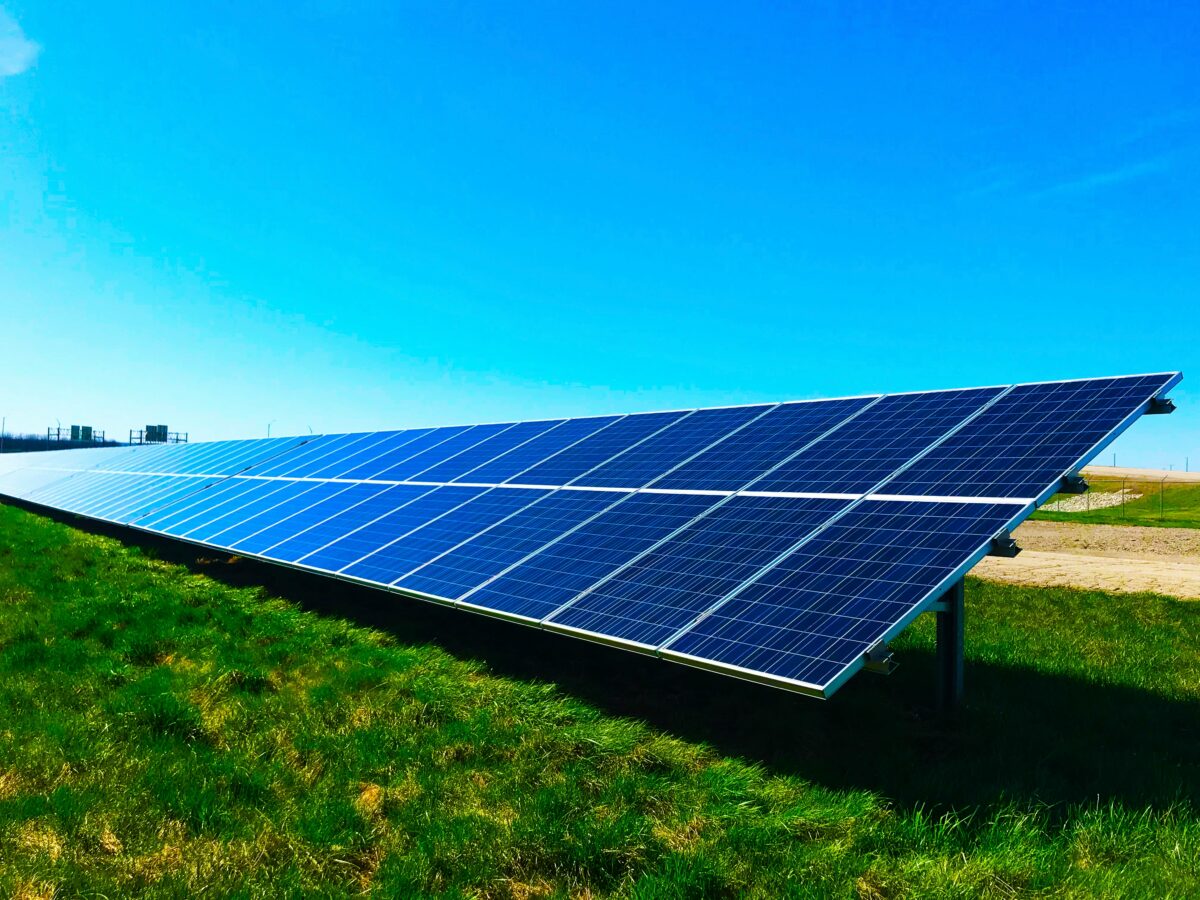Sydney-headquartered engineering company GHD’s Crossroads: Charting a course to equitable infrastructure survey has found 64% of Australians believe that switching to clean energy will open up new industries and create jobs in their communities, reflecting widespread optimism about the economic benefits of the energy transition.
However, that optimism is found only in younger Australians compared to older generations, where 73% of Gen Z (1997-2012) and 72% of Millennials (1981-96) agree clean energy will open up new industries and jobs, compared to 59% of Gen X (1965-80), and 55% of Baby Boomers (1946-64).
There is a strong demand among Australians for greater investment in clean energy at the community level, with 72% agreeing that the energy industry should do more to build a cleaner energy future locally.
They also want governments to play a more proactive role, where 70% of respondents believe government financial support for households and businesses is essential to accelerate the adoption of clean energy technologies.
Across all generations 74% agree that more should be done to educate communities about the importance of clean energy.

GHD Future Energy Global Program Lead Sarah Fitzgerald said Australia’s prosperity has long been built on the back of energy.
“It’s time to build on that foundation, leveraging our strengths and transitioning towards a future that prioritises clean, sustainable energy sources,” Fitzgerald
“The future prosperity of Australia is not only possible but inevitable – if we embrace the opportunities in front of us. Clean energy isn’t just a necessity; it’s a platform for economic growth, job creation, and a resilient future.”
Fitzgerald also said emerging industries like green metals and low-carbon fuels, such as green hydrogen and sustainable aviation fuels, are at the forefront of this transformation and are set to drive Australia’s economy forward while ensuring we meet global climate goals,” Fitzgerald said.
Affordability and reliability of clean energy are high on the list of concerns of Australian respondents, where 64% worry the clean energy transition will be neither affordable or reliable in the future.
However, Crossroads also found 59% of respondents believe the country is heading in the right direction with its energy transition but the figure ranks Australians among the most pessimistic of the 10 countries surveyed.
“Despite the prevailing pessimism, Australia is uniquely positioned to lead the global clean energy transition, as we have abundant sunshine, available land, skilled workers and a stable and committed government, making us the envy of many countries,” Fitzgerald said.
“We possess the essential foundations to not only meet our clean energy needs but to use energy to drive a prosperous future.”

“The findings highlight the need for a stronger, more coordinated approach between government, industry, and the public to ensure both the understanding and success of Australia’s clean energy transition,” FitzGerald said.
“There is a clear need for improved education and community engagement to ensure that Australians feel informed and empowered to actively participate in the energy transition and to pave Australia’s path to clean energy future.”
A total of 13,000 adults, sampled to be representative of age, gender and region in these countries, participated in the survey.
This content is protected by copyright and may not be reused. If you want to cooperate with us and would like to reuse some of our content, please contact: editors@pv-magazine.com.








1 comment
By submitting this form you agree to pv magazine using your data for the purposes of publishing your comment.
Your personal data will only be disclosed or otherwise transmitted to third parties for the purposes of spam filtering or if this is necessary for technical maintenance of the website. Any other transfer to third parties will not take place unless this is justified on the basis of applicable data protection regulations or if pv magazine is legally obliged to do so.
You may revoke this consent at any time with effect for the future, in which case your personal data will be deleted immediately. Otherwise, your data will be deleted if pv magazine has processed your request or the purpose of data storage is fulfilled.
Further information on data privacy can be found in our Data Protection Policy.